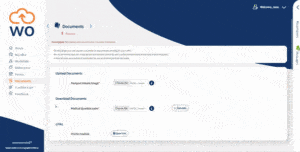The recent COVID-19 crisis helped to highlight how crucial it is to have a rapid hiring process.
The crisis badly affected Healthcare, distribution and food production. They found themselves having to quickly recruit thousands of extra workers as demands spiked. At the same time, a lot of teams managing this were working remotely.
All this requires a fast and reliable process to bring new workers into an organisation. It also has to make sure that proper checks are maintained and all paperwork is completed.
Emergency situations are not the only times a rapid onboarding process is required . It is also becoming a need for any employer that wants to remain competitive in today’s hiring climate. Here’s why:
Increased productivity
New hires are brought in to improve performance and to fill resource gaps. So the longer it takes to get an employee started, the longer a business could be under-performing.
For specialised or management roles, any kind of long onboarding process can have a negative impact on performance. Reducing onboarding time helps to maintain productivity and reduce disruption.
That’s where a strong corporate training program steps in—not just to orient, but to empower. New employees don’t just need a tour of the office or access to tools; they need context, clarity, and confidence.
A well-structured training experience shortens the gap between day one and full productivity. It equips team members with the skills, cultural insights, and decision-making frameworks they need to perform effectively from the start.
With tailored instructional design services from TrainSMART, businesses can craft training experiences that are agile, relevant, and scalable. Whether it’s for leadership development, soft skills, or role-specific processes, their customized approach ensures that training isn’t a one-size-fits-all manual—it’s a strategic asset. That means less downtime, fewer mistakes, and faster integration into the company’s rhythm.
Improved starter experience
The faster you get chosen candidates into roles, the less stressful the experience is liable to be for them. It reduces anxiety caused when people are left for weeks in job ‘limbo’ as they wait for their start date.
A rapid onboarding process guards against doubts and anxieties. It also helps reduce the strain of having to cover bills while being between jobs and not receiving an income.
Reduced dropouts
Simply put, the longer onboarding takes, the higher the risk of new employees dropping out. Many candidates have applied for multiple roles, long waiting times allow them to assess their options.
A speedy process is an effective way to reduce dropouts. It minimises HR costs and prevents competitors from tempting the best new starters away from your company.
Agile and flexible HR
The pandemic provides an extreme example of something that all HR teams have to deal with – unpredictability. From the need to quickly ramp up a team to finding urgent replacements for executive roles, a fast, agile hiring process is essential.
A speedy and reliable onboarding process provides HR with the groundwork for a robust hiring operation that can handle volatility. Standards can be maintained while managing unexpected demands.
Legal compliance
Providing new starters with all contract paperwork by day one is a legal requirement for all UK employers since the 2020 Good Work Plan legislation came to be in April.
A fast onboarding process ensures that all tasks are properly completed on or before the start date. Failure to comply with some of this could expose an employer to fines of up to £20,000.
Why has onboarding traditionally been so slow?
For most employers, the new starter process still takes weeks to complete. This is the time it takes for the HR team to do the work. That includes any required checks, getting paperwork signed and carrying out all the first-day prep too.
The new hire often has to print contracts to be signed and posted back to the employer. It creates a slow and cumbersome onboarding process.
How is technology reducing onboarding times?
A cloud-based onboarding system reduces admin time from days and weeks to a matter of minutes. It does this by removing the reliance on manual or paper-based steps.
Webonboarding uses an online portal through which a successful candidate can instantly access everything. It includes checking and signing a contract and all other forms. They can complete this using a smartphone or any connected device.
With a fully automated process, a hiring team can maintain onboarding speed and performance while coping with any kind of unpredictable demands.




